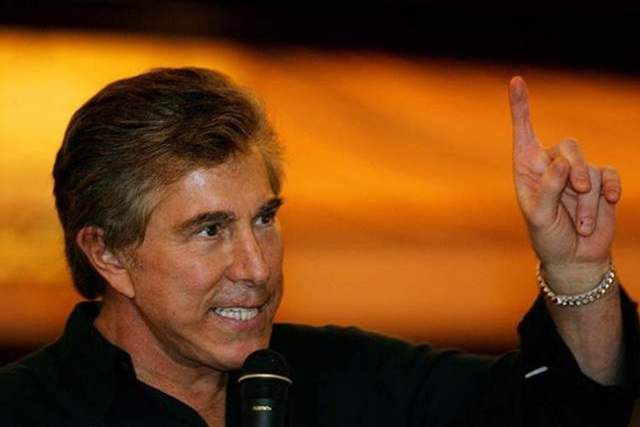Boston casino not yet a clear Wynn

A gaming insider whose opinion is respected in the industry has a theory that Massachusetts gambling regulators unknowingly handed some momentum to those who want to overturn the state’s 2011 casino law.
They did it by giving the single Boston-area gaming license to Wynn Resorts Ltd. on Sept. 16.
Saying the Las Vegas-based company isn’t well liked in Boston or in surrounding communities is an understatement. The award to Wynn could drive some of those angry voters to the polls Nov. 4.
Even with renewed vitriol of casino haters and the repeal’s support from Massachusetts’ Roman Catholic bishops and U.S. Sen. Elizabeth Warren, D-Mass., however, analysts and pollsters believe passage of Question 3 is a long shot.
“Most recent polls show 55 percent in support of gaming,” Nomura Securities gaming analyst Harry Curtis said. “We suspect that the threat of higher taxes, if the gaming bill is repealed, and support for new jobs will be popular with voters.”
Wynn’s $1.6 billion hotel-casino proposal for Everett, Mass., beat out a competing bid from a group that included the Mohegan Indian Tribe and the aging Suffolk Downs Race Track, which straddles Boston and Revere.
The Massachusetts Gaming Commission’s heated, drawn-out investigative process created many unnecessary hurt feelings.
Anti-gaming forces called the Wynn proposal “flawed.”
Suffolk Downs supporters worried the race track — the only facility for live thoroughbred horse racing in New England — would fail if it lost the casino bid. A day after Wynn was awarded the gaming license, Suffolk Downs operators confirmed those worries. The track will close Saturday.
Wynn and the track’s decision fueled support for Question 3, but that might be short-lived.
If approved, the measure would repeal the casino law passed by the Legislature and signed by the governor without a public referendum. The bill allowed for three Las Vegas-style hotel-casinos and slot machine-only casinos for four regions of Massachusetts.
State regulators have approved three casinos.
MGM Resorts International was awarded a license to build an $800 million hotel-casino in Springfield. The company is waiting until after the November election to begin construction. Penn National Gaming, however, is moving forward and building a $225 million slot machine-only casino at a harness racing track in Plainville.
The casino companies are financially backing an anti-Question 3 coalition.
The Massachusetts Gaming Commission stepped into the fray and said it would seek ways to preserve thoroughbred horse racing in the state. Suffolk Downs will offer simulcast race wagering through November.
The Boston license always was considered the most lucrative in Massachusetts and was expected to be hotly contested.
“The Eastern Massachusetts region is one of the last unsaturated regional gaming markets in the U.S.,” Curtis said, alluding to the 4.6 million residents of the Boston area.
Originally, the license seemed preordained for Caesars Entertainment Corp., Suffolk Downs’ original partner in a $1 billion project. Chairman Gary Loveman taught at Harvard, lives in the Boston area and owns a piece of the National Basketball Association’s Boston Celtics.
But a year ago, questions arose about Caesars, including the company’s partnership in Las Vegas with the Gansevoort Hotel Group, a New York-based company that had an investor with alleged ties to Russian organized crime.
Caesars dumped Gansevoort, but the move wasn’t enough to placate Suffolk Downs. The track scratched the Caesars partnership faster than New England Patriots fans could trash their Aaron Hernandez jerseys, then realigned with the Mohegan tribe, which operates a casino in nearby Connecticut.
Wynn had its own troubles.
The company faced allegations that convicted criminals would profit from its deal for the Everett site. Also, a past business relationship between one of the land owners and Massachusetts Gaming Commission Chairman Steven Crosby caused the regulator to drop out of the Wynn deliberations.
Many analysts thought Wynn would bail on Massachusetts. When the company withdrew from a potential Philadelphia casino venture a year ago, some speculated a similar release was already prepared for Boston.
In a May 2013 interview with the Review-Journal, Chairman Steve Wynn said the company’s future could be “urban casinos” featuring luxury hotels and amenities “with the casino an afterthought that pays for the whole project.”
Wynn will be sidelined for six weeks while waiting for the outcome of the referendum.
The resort has a 2017 planned opening, but that might be a bit ambitious in Massachusetts, a building expert told Gambling Compliance.com. Fights over regulatory approval and permits can drag for months in the Bay State.
Wynn plans a 500-room hotel in a 27-story glass tower with nongaming amenities. The casino will have more than 3,000 slot machines and 150 table games. The 30-acre site along the Mystic River once held a chemical plant and will need to be decontaminated.
At the Gaming Commission’s request, Wynn will come up with alternate hotel designs and address traffic congestion in Boston’s Sullivan Square.
The company also needs to repair relations with Boston, something Steve Wynn alluded to in a statement.
“A great deal of the resistance and energy that we experienced in some surrounding communities, and especially with Boston, was directly related to the fact that this was a competition,” Wynn said. “There is, after all, the potential for enormous benefits made available by this legislation.”
Howard Stutz’s Inside Gaming column appears Wednesdays and Sundays. He can be reached at hstutz@reviewjournal.com or 702-477-3871. Follow on Twitter: @howardstutz.












